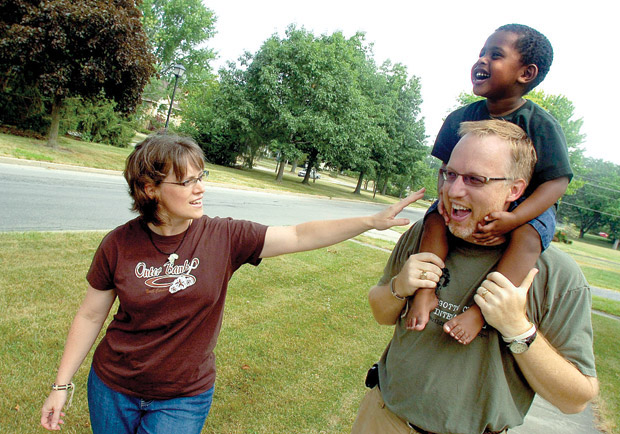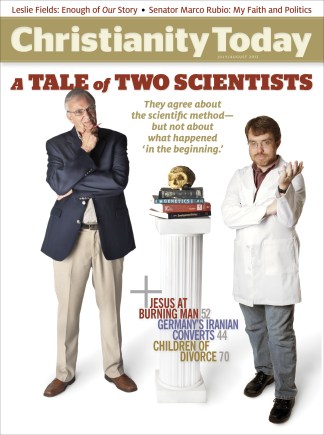Tighter government restrictions have reduced the number of children adopted from overseas to a 15-year low. In response, evangelicals—more willing than ever to adopt—are broadening the type of children they are willing to take in. More families, for example, are taking special-needs children, older kids, and those in foster care. Meanwhile, agencies are developing childcare subsidies and other programs to facilitate in-country adoptions.
"Constrictions on adoption of younger, healthier children have nudged many Christians to consider situations they may not have otherwise contemplated," said Jedd Medefind, president of the Christian Alliance for Orphans (CAO).
Bethany Christian Services, which facilitates hundreds of international adoptions annually, released an adoption kit for HIV-positive kids in 2011. President Bill Blacquiere says churches are responding.
"These children have a big need to have a family," he said. "Their future is very dim."
Worldwide, adoptions by foreign parents declined from 45,000 in 2004 to 25,000 last year. The United States saw an even greater drop, from 25,000 such adoptions in 2004 to just over 9,000 in 2011.
The reasons vary. Although the Hague Adoption Convention passed stricter guidelines in 1993, these didn't take effect in the United States until 2008. Top sending countries like Ethiopia and Guatemala have curtailed most outside adoptions, while Russia now requires three official visits that can cost $50,000.
There is also the bad taste left by a scandal two years ago, when Haitian officials accused a Kansas missionary of trying to sneak children across the border to the Dominican Republic.
However, an official with Dallas-based Buckner International said despite changing conditions, needs are still being met.
"Does the [decrease] mean that fewer children are finding homes?" said vice president Scott Collins. "Not necessarily."
One example is the new willingness Buckner has seen among families to adopt children from foster homes. In addition, the ministry has helped develop in-country adoption programs in 19 other countries.
Dan Cruver, director of Together for Adoption—the four-year-old "theological engine" of the evangelical adoption movement—believes such programs are a key to resolving the global orphan crisis.
"When looking at the [situation] as a whole, it's quite clear that international adoption will never be a primary means of addressing it," he said.
However, this diversification doesn't mean the world's orphan problems are near an end, says Phillip Wurster, director of the National Association of Christian Child and Family Agencies.
Millions of children worldwide still do not live in a family, and today's unstable economy, higher costs, and increased bureaucracy makes it tougher for them to find loving homes, he said.
"International adoption remains, to some extent, a political issue," said Wurster. "Potential adoptive families may be caught in the middle."
Medefind agrees, saying the bottleneck has grown tighter in recent years amid increasing demand.
"So vast numbers of children are growing up in institutions or on the streets due to the constricted pipeline between unparented children and the caring adults willing to become their parents," he said.
Even with tighter supply, the evangelical adoption movement continues to grow. Attendance at CAO's annual summit mushroomed in the past eight years from 40 to more than 2,000. After a 35 percent decrease last year in Bethany's international adoptions, formal applications in 2012 are up 20 percent.
"I would say God's Spirit is moving," Blacquiere said. "The church is catching up in missions to the world."










